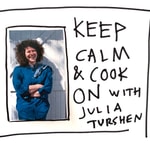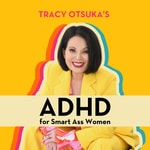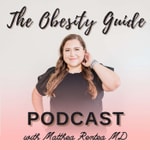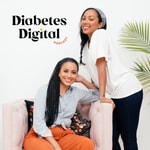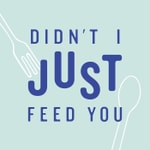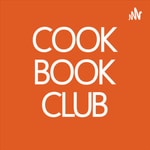Can I Have Another Snack? – Détails, épisodes et analyse
Détails du podcast
Informations techniques et générales issues du flux RSS du podcast.

Can I Have Another Snack?
Laura Thomas, PhD, RNutr
Fréquence : 1 épisode/17j. Total Éps: 61
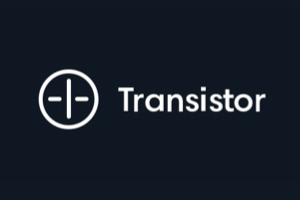
canihaveanothersnack.com
Classements récents
Dernières positions dans les classements Apple Podcasts et Spotify.
Apple Podcasts
🇬🇧 Grande Bretagne - parenting
10/07/2025#98🇬🇧 Grande Bretagne - parenting
16/06/2025#70🇬🇧 Grande Bretagne - parenting
15/06/2025#49🇬🇧 Grande Bretagne - parenting
14/06/2025#55🇬🇧 Grande Bretagne - parenting
23/05/2025#77🇬🇧 Grande Bretagne - parenting
19/05/2025#92🇬🇧 Grande Bretagne - parenting
10/05/2025#71🇬🇧 Grande Bretagne - parenting
09/05/2025#97🇬🇧 Grande Bretagne - parenting
07/05/2025#89🇬🇧 Grande Bretagne - parenting
06/05/2025#87
Spotify
Aucun classement récent disponible
Liens partagés entre épisodes et podcasts
Liens présents dans les descriptions d'épisodes et autres podcasts les utilisant également.
See all- http://incompetech.com/
15104 partages
- https://christyharrison.com/the-wellness-trap
351 partages
- https://www.instagram.com/iamalisonperry
247 partages
- https://www.instagram.com/thefatdoctor
117 partages
- https://www.instagram.com/alexlight_ldn
106 partages
Qualité et score du flux RSS
Évaluation technique de la qualité et de la structure du flux RSS.
See allScore global : 68%
Historique des publications
Répartition mensuelle des publications d'épisodes au fil des années.
38: "Postpartum body image was like a whole different ball game" - Snapback culture with Alex Light
Épisode 38
mardi 13 août 2024 • Durée 56:28
Today I'm talking to the incredible Alex Light, a body acceptance advocate and author of You Are Not a Before Picture. In this conversation we're talking about all the really insidious and toxic messaging we get around postpartum bodies.
In this episode we discuss:
👉 Snapback culture and the horrendous ways it shows up for birthing people
👉 How our bodies can change during and after pregnancy and the shame often associated with this
👉 The anti-fatness of '9 months in, 9 months out' pictures
👉 Ways to help protect your embodiment in the postpartum period
Come and let us know what you thought of the episode in the comments over on canihaveanothersnack.com. If you'd like to sign up to receive bonus podcasts from CIHAS, you can upgrade your subscription here.
You can follow Alex on Instagram here and Laura, over here
37: Sugar Attacks and Nutrition Quacks - ALL OF THE SNACKS
Épisode 37
jeudi 8 août 2024 • Durée 04:32
Hey-O. Lucy and I are BACK with your July installment of ALL OF THE SNACKS - a bonus pod for paying subscribers where we answer YOUR questions.
This month we're answering Qs about:
👉 How to talk to kids about oral health without falling into the diet culture trap and scaremongering sugar
👉 What toxic wellness things we can’t let go of
👉 How to tell when a nutrition ‘expert’ is legit or just a quack
👉 And some thoughts on supporting Autistic kids who seem ‘insatiable’
👉 Plus a controversial snack…
Come and let us know what you thought of this episode in the comments at canihaveanothersnack.com
If you'd like to listen to this episode in full then upgrade your membership here.
If you're already a paid subscriber, you should have received an email with an invite to your private RSS feed and instructions on how to add it to your podcast player (or you can listen to it on the website - click here). If you have any problems then email me on hello@laurathomasphd.co.uk. But fr, check your spam because it's probably there.
30: The Inconvenient Truth about Sugar with Dr. Karen Throsby (Part 1)
Épisode 33
vendredi 5 janvier 2024 • Durée 32:28
Hey everyone! Happy New Year and welcome back to the Can I Have Another Snack? podcast, where we talk about food, bodies, and identity, especially through the lens of parenting. I’m Laura Thomas, I’m an anti-diet registered nutritionist and I also write the Can I Have Another Snack newsletter.
I am really excited to share this week’s conversation; it is the perfect antidote to the January diet culture hellscape that we’re all living through. My guest today is gender studies professor and author Dr. Karen Throsby, whose book Sugar Rush (affiliate link) was an absolute highlight for me in 2023. I have been recommending it to everyone. Karen’s thesis in the book is essentially how the public health and popular science discourse around sugar obscures the social and structural inequality responsible for health disparities and by doing so, actively embeds it further into the fabric of society.
I’ve split this conversation into two parts - so you’ll get the second half of the conversation in two weeks. But today we talk about how the conversation around sugar being bad for you is framed with so much certainty, whereas the science holds a lot more doubt and ambiguity. We talk about how nostalgic fantasies of a past where nobody ate sugar and everyone climbed trees all day long erases the unpaid labour of women, and how even modern day efforts to eliminate sugar are dependent on unequal distribution of household labour and are framed as work that is pleasurable, or else women get scapegoated as bad mothers. So much great stuff in this episode and like I said, I’ll share part two soon, where we get into the rhetoric around ultra-processed food, how the so-called war on ‘obes*ty’ fails to live up to it’s own aims and loads more.
Before we get to Karen just a quick reminder that the entire CIHAS universe is reader and listener supported, meaning I literally can’t do this work without your support. If you like what we do here and want to help keep the lights on then you can upgrade your account to become a paying subscriber - it’s £5/month or £50/year. Not only do you support the time and labour that goes into producing the newsletter and podcast, but you get access to our weekly community discussion thread Snacky Bits. You can comment on posts, and you get access to my monthly Dear Laura column and the full archive. You’ll also see a bit more bonus content on free essays that’s just for paid subscribers in the coming months, so make sure you’re signed up to get in on that action. Head to laurathomas.substack.com or check out the show notes for that link.
Follow Laura on Instagram here.
Subscribe to Laura’s newsletter here.
Enrol in the Raising Embodied Eaters course here.
Here’s the transcript in full:
MAIN EPISODE
Laura: Karen, I'd love if you could begin by sharing a bit about you and the work that you do.
Karen: Yes, thank you. So I'm a sociologist, I'm a professor of gender studies at the School of Sociology and Social Policy at the University of Leeds. And throughout my 20 plus years of career, I've been looking at issues of gender, bodies, technology and health.
So I've done work on reproductive technology, on surgical weight management, I've done work on endurance sports and what you do to a body when you engage in endurance sports socially, what does that mean? And then most recently, I've been working on what I've been calling the social life of sugar. How can we think about sugar in a moment when sugar is being attacked as a kind of health demon, the constant in my career has been this idea about bodies and how we try and change bodies or how bodies change and then most recently in relation to food and particularly sugar,
Laura: Tell us a little bit more about that because, you know, you kind of say this almost quite flippantly. “Oh yeah, I’ve been doing sugar”, but that's like a whole like undertaking in terms of research and then the book that came out of that. So, could you maybe tell us a little bit about the research that you did that went into, you know, studying the social life of sugar and, and maybe a little bit about the process of writing the book as well?
Karen: Yes, of course. So, it started from observation, which is where a lot of research comes from – of noticing just a lot of sugar talk in the media, for example. And so, I decided to look at it more formally. So, I actually did a, I started with newspapers and I looked at newspaper coverage from 2000. So I ended up looking to 2020 when I searched for newspaper articles in nine UK newspapers. So across the political spectrum and broadsheet, tabloids as well, looking for articles of quite substantive articles like sort of 500 words or more with the word sugar in the title.
And then I filtered those. So I took out all of the irrelevant things. So there's lots of mentions of Alan Sugar, uh, for example, lots of sugar metaphors, like a ‘spoonful of sugar’ that you get in business reporting. And I took all those out. And then I kind of looked at the pattern and what you see from 2000 to about 2012, it's very, a very low level of coverage, just trickling along very low.
And then in 2013, it starts to shoot up. And then by 2016, it's really high and it peaks there. And then it drops off a little bit, picks up again at 2018 and then slowly falls away. And so I took 2013 through to towards the end of 2020 as the period of study, and that ended up with about 550 newspaper articles that then became my objective analysis of what's happening with sugar.
And then I dug out anything else I could find. So policy documents and newspaper, medical articles, self-help books, popular science tracks – anything I could find about sugar. And that became the body of data that I then was analyzing just to see: how is sugar being talked about? Who is being excluded when we talk about sugar?
Trying to see it, not literally, but thinking about what is sugar doing socially when we talk about it.
Laura: Yeah. It's, it's an, I'm just thinking of this from a research perspective. It's a huge undertaking. I'm just imagining you going through your Nvivo now, it's just like,
Karen: exactly. You're right there. I mean, it was an unusual project for me, because all my other projects have been broadly ethnographic. So I've actually gone and observed groups, a social, social organization, and so on, um, or done interviews and things like that. So this was a departure for me that it's very text based. It's looking at how it's reproduced and represented in text, in different kinds of text.
But you ask the same questions, what is a newspaper trying to achieve in writing in this particular way? What is a popular science track trying to achieve in writing about sugar in a particular way? And then you can start thinking about, so what does sugar mean in different contexts, but also what kind of work does sugar enable us to do socially?
Laura: Mm hmm. So can you tell us a little bit more about the sort of, maybe just like the headline conclusions that you drew out with this and then and we can kind of get into some of the more specifics in a second.
Karen: Yeah, I mean the bottom line for me was that sugar and wh...
29: "Store Bought Insulin Works Really Well" with Erin Phillips
Épisode 32
vendredi 1 décembre 2023 • Durée 01:05:57
Hey and welcome to the Can I Have Another Snack? Podcast.
This week I’m talking to specialist diabetes dietitian Erin Phillips about all things insulin resistance and type 2 diabetes. Erin shares some background on what happens in the body that leads to type 2 diabetes, why ‘prediabetes’ is a dubious diagnosis and the things the keto-bros often leave out this conversation. We talk about why sugar and higher weight aren’t the cause of type 2 diabetes, and how there is so much more we can do to care for diabetes outside of cutting carbs and losing weight, especially if you have a background of an ED or disordered eating.
Lots of you have requested more content around this topic - let me know what questions you still have after listening to this episode!
Find out more about Erin’s work here.
Follow her on Instagram here.
Follow Laura on Instagram here.
Subscribe to Laura’s newsletter here.
Enrol in the Raising Embodied Eaters course here.
Here’s the transcript in full:
INTRO
Erin: I think sometimes a diagnosis of prediabetes or type 2 diabetes can be a traumatic event, especially when it's not in the presence of someone caring and that you trust. Or especially if you have a family history of diabetes where you've seen…maybe some scary things. Which I will – now that I said that – I will add that it's, that's not a definite outcome either, those scary things, yeah.
But it can be, that can be really stressful, and that's the opposite of what is helpful for blood sugars.
Laura: Hey and welcome to the Can I Have Another Snack? podcast where we talk about appetite, bodies and identity, especially through the lens of parenting. I'm Laura Thomas, I'm an anti-diet registered nutritionist and I also write the Can I Have Another Snack? newsletter.
Today's guest is registered dietitian Erin Phillips. Erin's work is grounded in health at every size and fat positive nutrition. She has an advanced certification as a diabetes specialist and has spent most of her career working with people living with all types of diabetes. She has a private practice that focuses primarily on the intersection of diabetes and eating disorders. She works with people living with diabetes through individual counselling, as well as providing consultation to clinicians looking to be more grounded and confident in supporting their clients and patients with co-occurring diagnoses of diabetes and eating disorders.
So I've had a lot of feedback from newsletter readers and people who listen to the podcast saying that you'd like more information about weight-inclusive approaches to so-called prediabetes – which we'll get into in a minute – insulin resistance and elevated glucose levels as well as type 2 diabetes. Most of the advice out there centers on carbs. So I was excited to talk to Erin about why these approaches are not only unhelpful for a lot of folks, but how they can be harmful. And why you don't need to get sucked into diet culture to care for yourself.
In this episode, we discuss why type 2 diabetes isn't caused by too much sugar or having a bigger body, why pre-diabetes is a fake diagnosis, and why you don't need to cut out carbs to manage your blood sugar. I'm so excited for you to hear this episode.
But before we get to Erin, I want to remind you that the Can I Have Another Snack? universe is entirely listener and reader supported. If you get something out of the work that we do here, please help support us by becoming a paid subscriber. It's £5 a month or £50 for the year. And as well as getting you loads of cool perks, you help guarantee the sustainability of this newsletter, have a say in the work that we do here and help ensure I can keep delivering deeply researched pieces that provide a diet culture-free take on hot nutrition topics like ultra processed foods, the Zoe app, and the deep dive on folic acid and folate that I just did recently.
All of those you can read at laurathomas.substack.com if you haven't already. And if you're not totally sold yet then maybe this lovely review that I got recently will help convince you. So one reader wrote:
“I feel so lucky that I found your work around the same time I started feeding my kid real food. It saved me so much angst and has allowed me to relax and really enjoy seeing him explore eating. Your essays on sugar especially was a game changer. I'm sure it won't always be plain sailing, but I feel so much more prepared to ride the waves of his changing appetite. and tastes as he grows, accepting them as a feature and not a bug.
So hopefully he can have a much more relaxed relationship to food than I had for a long time. And I pay my £5 a month because I so value the work you put into your writing and think it's worth paying for. There's a lot of free advice out there, but I never know what I can trust. This is such a safe haven.”
So yeah, it's £5 a month or £50 for the year. You can sign up at laurathomas.substack.com or check out the show notes for this episode. And if you can't stretch to a paid subscription right now, you can email hello@laurathomasphd.co.uk for a comp subscription. No questions asked. You don't need to justify yourself. Just put ‘Snacks’ in the subject line.
This is actually going to be our last podcast of the year. I'll be back in your ears in January with brand new guests. Paid subscribers will continue to hear from me in your inboxes and in the group chat, where I'm going to be holding space for all the venting and screaming at diet culture shit that gets dredged up over the holidays and into January. If you'd like to join us, you can sign up at LauraThomas.substack.com. Otherwise I'll speak to you in January.
Okay, team. Over to Erin.
MAIN EPISODE:
Alright, Erin. Can you please start by telling us a bit more about you and the work that you do?
Erin: Yeah. I am a registered dietitian. Well, in the United States, based in, um, the Seattle, Washington…I was gonna say, the ‘state of Washington’! And I'm also a certified diabetes care and education specialist. It used to be a certified diabetes educator and they wanted to add more letters. So I'm in private practice and I focus on working with people with diabetes and eating disorders at the same time, or people who had a history of an eating disorder and then were recently diagnosed with diabetes but don't want like It wouldn't be helpful or safe for them to go to just any diabetes educator.
So those are the folks that I work with.
Laura: Oka...
28: The Dinosaur T-Shirt to Toxic Masculinity Pipeline with Kirstie Beaven
Épisode 31
vendredi 17 novembre 2023 • Durée 01:12:40
Hey and welcome to the Can I Have Another Snack? Podcast. I have been so excited to share this week’s episode with you. Our guest today is Kirstie Beaven from Sonshine magazine - a publication dedicated to raising boys for a more equal world. Kirstie and I talk about how seemingly innocuous things like dinosaur t-shirts and shark pants send a message to our kids about who they can and can’t be, how they should expect to be treated, and how they should treat others.
Kirstie gives us a fascinating history lesson on how kids’ clothes became gendered (spoiler, colonialism and capitalism have a lot to do with it) and why these have massive repercussions for gender equality. We also talk about why Kirstie is low-key obsessed with pants (the underwear kind), and why we can’t just empower girls in a vacuum; we also need to be teaching boys emotional literacy and allowing them to have an identity outside of the ‘big boy’, or the sporty one.
Just a heads up that we talk about some distressing statistics around sexual harassment, suicide, and violence towards women and girls, but not in explicit detail.
This is without a doubt one of my favourite episodes we’ve done on the CIHAS pod - if you’ve never listened before then this is a great place to start, even if you don’t have kids.
Don’t forget to leave a review in your podcast player if you enjoy this episode - or let me know what you think in the comments below.
Find out more about Kirstie’s work here.
Follow her on Instagram here.
Follow Laura on Instagram here.
Subscribe to Laura’s newsletter here.
Enrol in the Raising Embodied Eaters course here.
Here’s the transcript in full:
INTRO
Kirstie: That's one of the things I really want to do, is just gently point out the things that we take for granted that we say are normal or natural, but they're not. They're totally constructed. Many of the things that we just take for…oh yeah, pink and blue. Pink is a girls’ colour, blue is a boys’ colour. We think of that as completely normal and it's totally made up and it's so recent.
Laura: Hey, and welcome to the Can I Have Another Snack? podcast, where we talk about appetite, bodies, and identity, especially through the lens of parenting. I'm Laura Thomas, I'm an anti diet registered nutritionist, and I also write the Can I Have Another Snack? newsletter. Today I'm talking to Kirstie Beavan.
Kirstie is the founder and editor of Sonshine Magazine, raising boys for a more equal world. Sonshine is a print and digital quarterly, as well as a social profile for parents who want to change the way we talk to and about our sons, to create a better society for all children.
I've been so excited to share this episode. We recorded it a while back and I'm really glad that you're able to finally listen to it. It's such a great discussion about gender inequality and why seemingly innocuous things like how we dress our kids have really long term implications for their emotional development and the roles that they learn to occupy in society. Kirstie is a wealth of knowledge about the gendered history of kids clothing, which you won't be surprised to hear is entirely rooted in capitalism, rather than any real biological or physical differences between sexes.
I can't wait for you to hear this conversation, and if you don't already, you need to get your hands on a copy of Sonshine Magazine, which is available in print and digitally. I'll link to it in the show notes so you can order yours. It would make a really lovely holiday gift for your co-parent or some other parents that you have in your life, maybe even for yourself.
But before we get to today's episode, I'd love to tell you all about the benefits of becoming a paid subscriber to the Can I Have Another Snack? Newsletter. And of course there are cool perks like being able to comment on posts, our Thursday threads, Snacky Bits, and exclusive posts on intuitive eating, weight inclusive health, and responsive feeding. But more than all of that, being reader and listener supported means I can better control who comes into this space. In other words, we can keep the trolls and the fatphobes out. And if they do sneak in, at least they've had to pay for the privilege, and I can still boot them out.
Having control over who comes into the space is essential for creating a safe, nurturing space away from diet culture where we can discuss difficult topics like how we deal with diet-y friends, gender division of labour, and body shame. All the way through to more light hearted stuff like the weird shit that mummy influencers say.
If you're still not convinced, then here's a recent testimonial from someone in the CIHAS community. So they wrote:
“I wish I had access to the advice and information you share when my kids were little, but it's still valuable now that they're nearly adults for a couple of reasons at least.
Firstly, having only been diagnosed as autistic in middle age, I have had a complicated relationship with food for most of my life. From childhood fussy eating, through stigma over my higher body weight and internalised fat phobia, to temporary success with dieting, followed by the inevitable return to my previous size. Your writing has helped me cast off many of my own hang ups about food, weight, and health, making me a better role model for my kids.
Secondly, your advice helps me to support and advise my kids with their own food, health, and body image issues, and to advocate for them to family and friends. I believe in showing my appreciation for people who provide me with help and support, at least by saying thank you, and where possible, with feedback and or financially. I can't financially support everyone I'd like to all of the time. But I do what I can when I can. Thank you for all you do Laura.”
So what are you waiting for? You can sign up today at laurathomas.substack.com or find the link in your show notes. It's £5 a month or £5 for the year and if you can't stretch that right now just email hello@laurathomasphd.co.uk with the word “Snacks” in the subject line and we'll hook you up with a comp subscription. No questions asked. You can also gift a subscription to a friend for the holidays to give them unfettered access to the CIHAS community. I can even send you a gift certificate. Just email hello@laurathomasphd.co.uk and we'll hook you up.
Can I Have Another Snack? is a reader-supported publication. To receive new posts and support my work, consider becoming a free or paid subscriber.
All right team, let's get to today's conversation with Kirstie Beavan from Sonshine Magazine.
MAIN EPISODE
All right, Kirstie, to start with, can you tell us a little bit about yourself and what you do?
Kirstie: I'm Kirstie and I run Sonshine Magazine, which is a quarterly print and digital ma...
27: "I'm so Sorry That Anybody Has Made you Feel That Your Body is Flawed and Needs Fixing" with Dr. Molly Moffat
Épisode 30
vendredi 3 novembre 2023 • Durée 01:04:34
Today on the podcast I’m joined by Dr. Molly Moffat - A GP who practices medicine from a weight inclusive, neurodiversity affirming lens, celebrating both diversity of bodies and of minds.
In this episode, we are talking about how Molly moved away from recommending diets and weight loss to her patients, towards an anti-diet, weight-inclusive approach, focused on treating individuals with care and compassion. We get into what exactly medical anti-fat bias is and why it's so harmful, and she has some really lovely suggestions for how to talk to patients who come in with the idea that they have to lose weight for medical reasons.
Find out more about Molly’s work here.
Follow Laura on Instagram here.
Subscribe to Laura’s newsletter here.
Enrol in the Raising Embodied Eaters course here.
Here’s the transcript in full:
INTRO:
Molly: Fat folk don't go and see their doctor when they need to. And you know, I don't need to explain why that is a concern. That is a concern. It means that diagnoses are missed, diagnoses are made late, and it absolutely contributes to stress, mental health, physical health and health inequity in an already marginalised group of people.
Laura: Hey, and welcome to the Can I Have Another Snack? podcast, where we talk all about appetite, bodies and identity, especially through the lens of parenting. I'm Laura Thomas, I'm an anti diet registered nutritionist, and I also write the Can I Have Another Snack? newsletter. Today I'm talking to Dr. Molly Moffat.
Molly is a GP with a special interest in learning disability and autism. She practices medicine from a weight inclusive, neurodiversity affirming lens, celebrating both diversity of bodies and of minds. She's neurodivergent herself and has three children.
In this episode, Molly and I are talking about how she moved away from recommending diets and weight loss to her patients towards an anti diet, weight inclusive approach, focused on treating individuals with care and compassion. We get into what exactly medical anti-fat bias is and why it's so harmful, and she has some really lovely suggestions for how to talk to patients who come in with the idea that they have to lose weight for medical reasons. I really loved talking to Molly and I think you're going to enjoy this episode.
But before we get to today's conversation, I want to tell you real quick about the benefits of becoming a paid subscriber to the Can I Have Another Snack? newsletter and community. Now, I know we're not used to having to pay for content on the internet. and why would you pay for something where 85% of the content is free anyway?
Well, because without paying supporters, this work just wouldn't be possible. None of the newsletter, not the podcast. As well as supporting me in the time it takes to research, interview contributors, and write articles, your support goes towards paying guests for their time and their labour, as well as a podcast and a newsletter editor, so it's a whole team effort.
You also help me keep the space ad and sponsor free, so I don't have to sell out to advertisers or exploit my kid for freebies. Plus, keeping the community closed to paying subscribers only means that we keep the trolls and the fatphobes out. I recently asked the CIHAS community why they support the newsletter, and this is what one reader had to say:
“I'm a mum of one fairly adventurous, self proclaimed vegetarian and one theoretical omnivore. The latter survives almost exclusively on added sugar and butter, but mostly sugar. I consumed all the picky eating advice, some of it really well meaning and pretty mellow, but by seven years in, I was more frustrated, confused, and full of self doubt than ever.
Enter CIHAS. The no nonsense, cut through the bullshit, science backed content is exceptional. The content about sugar is especially helpful to me, and the anti diet lens is an antidote to my extremely anti fat/diet culture conditioning. And as an American, the British references are just an added bonus. To say your work is actively changing my life is not an understatement. Thank you.”
Well, thank you to the reader who sent that really lovely review. Becoming a paid subscriber is a fiver a month or £50 for the year. And you get loads of cool perks as well as just my undying gratitude for supporting my work. Head to laurathomas.substack.com to subscribe now.
All right, team, here's my conversation with Dr. Molly Moffatt.
MAIN EPISODE:
Hey Molly, can you start by telling us a little bit about you and the work that you do?
Molly: Sure, yes. So I'm a GP, although I actually only do one day of general practice at the moment. I have a special interest in learning disability and autism. I've been working in that field for a few years, and I've recently started working in paediatrics, doing some neurodevelopmental assessments, and I also do some teaching for medical students.
The reason I'm here is because I do my very best to practice in a weight inclusive manner, so I'm not worried about fat bodies, but I'm really worried about the way fat bodies are treated, particularly when they're trying to seek healthcare.
Laura: Yeah, that's what you're here to talk about today, but I feel like we could probably have a whole other conversation about neurodivergence and feeding differences and all of that stuff, but I will try and rein myself in because, yeah, like you said, I really wanted to talk to you about how fat bodies are perceived and how they're treated in medical settings.
So I'm wondering if you could kind of take us on a bit of a journey with you. Can you set the scene for us? You're a medic, straight out of training, going into your GP specialisation. At that point, what do you believe to be true about the relationship between weight and health?
Molly: Okay. So I mean, all of my medical school teaching, all of my junior doctor training, and my GP training was absolutely based in this weight normative approach.
So the idea that weight was a marker of health, and that we should be pursuing weight management for our fat patients. And there was never any discussion around where that came from. So, you know, it was just stated as a fact that ‘ob*sity’ came with all of these comorbidities and put people at increased risk of X, Y, and Z.
And, like I say, I never remember – and I'm really confident it didn't happen – any discussion around where the evidence behind those statements came from, and the fact that actually...it was really complex and that maybe there were some other factors at play that cause that association between body size and certain diseases.
And I also never remember any conversation about weight stigma and the impact that that can have on people's health.
Laura: Okay. Well, there's so much that I could kind of, like, tease out of what you just said there, but I think the sort of headline for me is just how this information was presented to you as complete certainty. I think if I'm kind of reading between the lines, or what I've even learned in my own training,...
26: Joe Wicks, 'Roids, and the Toxic Fitness Space with Michael Ulloa
Épisode 29
vendredi 20 octobre 2023 • Durée 51:03
In today’s CIHAS episode, I’m speaking to online personal trainer and performance nutritionist, Michael Ulloa. Michael is on a mission to make the fitness industry a more welcoming and accepting space for all, which is exactly what we dive into in this ‘sode.
We are unpacking some toxic myths about exercise, Michael spills the beans on his feelings about Joe Wicks, and we discuss what really goes into professional fitness models’ photo shoots. Plus we answer loads of your questions like how to find a more joyful relationship with movement after a lifetime of using it as punishment for eating.
Find out more about Michael’s work here.
Follow his work on Instagram here.
Follow Laura on Instagram here.
Subscribe to Laura’s newsletter here.
Enrol in the Raising Embodied Eaters course here.
Here’s the transcript in full:
INTRO:
Michael: The way that we're being sold health and fitness just isn't sustainable or achievable in any way and then people blame themselves and feel worse and then therefore they're more likely to spend money on all these other programs repeatedly and it's just a vicious cycle that just doesn't ever end.
Laura: Hey, and welcome to the Can I Have Another Snack? Podcast, where we talk about appetite, bodies, and identity, especially through the lens of parenting. I'm Laura Thomas. I'm an anti diet registered nutritionist, and I also write the Can I Have Another Snack? Newsletter. Today, I'm talking to Michael Ulloa.
Michael is an online personal trainer and performance nutritionist who is on a mission to make the fitness industry a more welcoming and accepting space for all. In today's episode, Michael and I are shooting the shit about the fitness industry, unpacking some toxic myths about exercise, and answering loads of your questions: like how to find a more joyful relationship with movement after a lifetime of using it as punishment for eating.
Some of you have been asking for more episodes on movement and fitness, so I think you're going to enjoy this conversation. We'll get to Michael in just a second, but first, I want to tell you real quick about the benefits of becoming a paid subscriber to the Can I Have Another Snack? Newsletter and community.
For just £5 a month, or £50 a year, you get access to the extended CIHAS universe. That means exclusive weekly discussion threads, links and recommendations, you get commenting privileges and access to my monthly Dear Laura column, as well as the whole CIHAS archive and a few other sweet perks, but more than anything, you're supporting independent evidence based nutrition information free from diet culture and anti fatness.
I can't do this work without the help of paying subscribers. So if you get something out of being here, then please consider upgrading your subscription today. And if you're still not convinced, then check out this recent review I received from a reader.
They said:
"Laura's podcast and newsletter are always thought provoking, filled with care and compassion, and a respite from one size fits all health and nutrition advice."
So if that sounds good to you, then head to laurathomas.substack.com and become a paying subscriber today.
Alright team, let's get to today's episode, here's Michael.
MAIN EPISODE:
All right, Michael, I need to know what the deal is. Because you're like one of maybe five PTs who isn't pushing aesthetic or weight loss goals on us.
Has that always been your deal? Or is this more of an evolution for you?
Michael: Yeah, it's definitely an evolution and it's funny you mentioned that because I get a lot of angry messages from personal trainers that don't think that my approach is right, which is always quite funny to me. I don't know, it's, I definitely, when I first started off in the fitness industry... I've been a personal trainer now for nearly 10 years.
And in terms of personal training, that kind of makes you a bit of a veteran because a lot of trainers are quite short lived on average. When I first started off, I definitely did have your typical, like, mainstream slightly bro approach to fitness and nutrition. And I know most people that maybe work in the kind of space that, like, you operate in, for example, there tends to usually be a reason or a thing that caused them to go down that path.
But I didn't have that at all. It really has just been a really slow evolution of just actually reading the research, working with people on a day to day basis, getting feedback from clients about what is working and what isn't, and then just really tweaking things over a very long period of time.
I've also had some very honest clients, which have been great too, who kind of really follow my content on social media and they would message me like, oh, that's not very helpful. How about approaching it like this? And i'm always open to feedback, I always want to improve my practice and my messaging and I was always just quite receptive to that and I don't know... 10 years later I now finally feel like i'm working with people in a way that genuinely helps them long term and i'm actually creating content that is useful for people rather than just almost creating content for other personal trainers, which seems to be what a lot of fitness professionals do.
Laura: Tell me about the angry messages. Why are other PTs up in your shit about...?
Michael: I really don't know. I wish I knew the answer. I think... I guess if you're attacking someone's entire being and their work and their ethos that they've believed in for so many years, then I guess that a lot of people will react to that in quite a negative way.
I really don't understand it at all either. Usually male coaches too, are very angry in the way that I approach social media and some of the names and things I've been called are pretty grim, but I only... I wish I knew the answer to that, but some, for some reason people get very angry in the way that I am approaching fitness and nutrition.
But yeah, I really don't mind. Like I, as I said, I feel like I'm really helping people now and I'm happy to keep championing that message.
Laura: I mean, I'm just wondering if part of it is because that myth, certain myth of no pain, no gain. And that you need to like, basically punish yourself with exercise in order to achieve a particular body type.
You're saying, actually, we don't need to do that. It's okay if you don't kill yourself with exercise. We shouldn't be weaponising it against ourselves. For me, it speaks to how deeply internalised people's anti fat bias is. You're challenging the fundamental sort of premise that their beliefs are resting on, which is that, you can't be fit and fat.
Or you...yeah, like I said before, that you have to punish yourself with exercise or like that... it's somehow okay to exist in a body that isn't fulfilling this ideal that we have been ...
25: “John, The Kids Are Playing With Condoms” with Sex Educator Sarah Sproule
Épisode 28
vendredi 29 septembre 2023 • Durée 01:07:52
Today I’m speaking to Sarah Sproule (she/them), a sex educator, an occupational therapist, as well as a mother of three teens. Sarah uses their skills to ensure that every parent and caring adult knows how to build a deeper connection with their growing kids, and believes that no child should ever feel alone and unable to reach out for help with their body, their boundaries, or their needs. Or their knowledge about sexuality.
In this episode, we are talking about ‘sensitive things’ with our kids, plus reclaiming the ‘C word’. We dive into the following topics;
* The ‘invisible influence of normal’
* Showing kids we’re a trusted person to talk to about sensitive things
* Why we don’t want to wait until sex ed classes to start talking about sex
* Teaching kids about body boundaries
* Answering your Qs about:
* How to explain to kids why you do some things in private?
* 4 year olds asking BIG questions you’re not sure they’re ready for
* 3 year olds who are resistant to challenging gender stereotypes
* How to support your child when someone is asking invasive questions
* Plus Sarah shares the unknown history of the C word!
Find out more about Sarah’s work here.
Follow her work on Instagram here.
Follow Laura on Instagram here.
Subscribe to my newsletter here.
Enrol in the Raising Embodied Eaters course here.
Here’s the transcript in full:
Sarah Sproule: I drew analogies between talking about sensitive things and other parts of parenting. So, I don't know a single other parent who waited for their child to ask them for a stem of broccoli before they gave it to them. Right? And we know that broccoli's really great. I don't know a parent who waited for their child to ask them, Can you please show me how to cross the road? Because I want to stay safe. Like, there are so many things we do, we take initiative for, because we know it's important for the health and safety and joy of our child.
INTRO
Laura Thomas: Welcome to the Can I Have Another Snack? podcast, where we are talking about appetite, bodies, and identity, especially through the lens of parenting. I'm Laura Thomas, I'm an anti-diet registered nutritionist, and I also write the Can I Have Another Snack? newsletter. Today, I'm talking to Sarah Sproule. Sarah, who uses she/them pronouns, is a sex educator, an occupational therapist, as well as a mother of three teens.
Sarah uses their skills to ensure that every parent and caring adult knows how to build a deeper connection with their growing kids. She believes that no child should ever feel alone and unable to reach out for help with their body, their boundaries, or their needs. Or their knowledge about sexuality.
In this conversation, we talk about what Sarah calls the ‘invisible influence of normal’; all the things, spoken and unspoken, that shape how we think about bodies, sex, pleasure, periods, and more. And we talk about why it's important to approach these conversations with our kids early and in a non-judgmental way that prioritises connection and helps inoculate them against body shame.
We talk about supporting kids to trust their body boundaries and how that can help them use their voice when something doesn't feel right. Plus we answer your questions like how to teach kids that maybe it's best not to touch their penis at the dinner table, without inadvertently shrouding them in shame.
Obviously this is a conversation about sensitive topics to do with sex, and at one point we do mention rape and other forms of violence. We also use the C word quite liberally towards the end, which Sarah and I are comfortable with, but we understand that it may not be for everyone. So all of that is to say, listen at your discretion and take care of yourself. I will say, though, that Sarah is extremely compassionate and thoughtful in how she approaches these topics. So I hope you'll find this to be a safe and nourishing conversation.
Just before we get to Sarah, I wanted to tell you real quick about the benefits of becoming a paid subscriber to the Can I Have Another Snack? newsletter and community and whole wider universe.
So until the end of September, I'm running a 15% off sale on the cost of annual memberships. So instead of paying £50 a year, you would pay £42.50 and that gets you access to the monthly Dear Laura columns where I answer your questions. It gets you access to the whole CIHAS archive, it gives you commenting privileges, plus weekly discussion threads tackling the big issues like…how clean is your fridge? And who are you dressing for on the school run? It's a really welcoming space where we learn from each other, share with folks who have a similar world view to us, and we have a lot of fun. And of course it's a completely diet, body shame-free space.
I wanted to quickly share what one CIHAS reader said recently. They shared this review saying:
“Laura's Substack is a lifeline in a world where diet culture and fatphobia is pervasive in all aspects of our lives including how we feed our children. Every time I start to worry about my toddlers eating and that internalised diet culture mentality starts bubbling up, it's Laura's voice telling me that it's all going to be okay. Through her invaluable work on CIHAS, she's genuinely keeping me sane and empowering me to navigate feeding my child and making the right decisions for my family. The paid subscription is more than worth it. Thanks, Laura.”
Well, thank you for that really sweet review. And like I said, we're running a sale for the rest of September and you can sign up at laurathomas.substack.com and I'll drop the link in the show notes so you can find it really easily. And by becoming a paid subscriber, not only do you get the sweet perks that I mentioned earlier, but more importantly, your contributions help make this work sustainable.
All right, team, let's get to today's guest. Here's Sarah.
MAIN EPISODE
Hey, Sarah, can you start by telling us a little bit about you and the work that you do, please?
Sarah: I support parents and other adults who are raising children to speak about sensitive things. So that's a euphemism for puberty, genitals, babies, growing up, sex, relationships, all that sort of stuff that might seem a little bit like…eeeeh!...when you think about having conversations about that with kids.
And that work is important to me. I'm an occupational therapist, but I do that work because I was one of the kids that would have really benefited from way more open and sort of practical conversations about all that sort of stuff. My mum and dad were missionaries and we grew up in Nigeria for most of my teen...
24: Should We Really Weigh Kids in Schools? with Molly Forbes
Épisode 27
vendredi 15 septembre 2023 • Durée 58:05
Alright team, after a little hiatus from the CIHAS pod for a month, we’re coming back hard with Molly Forbes. Molly joined me back in May 2022 on the Don’t Salt My Game pod where we discussed how to stomp out diet culture in schools, and I’m so excited to have her join us in today’s episode.
This time around, we discuss what the NCMP is, what it looks like in different schools, why you might want to opt your kid out, how you even go about doing that, and what you can do if you're worried about your child feeling left out if they're the ones who are left in the classroom while everyone else goes to get weighed.
Find out more about Molly’s work here.
Follow her work on Instagram here.
Follow Laura on Instagram here.
Subscribe to my newsletter here.
Read more about the history of and evidence behind the NCMP here:
Here’s the transcript in full:
INTRO:
Laura Thomas: Hey and welcome to the Can I Have Another Snack? podcast, where we talk about appetite, bodies and identity, especially through the lens of parenting. I'm Laura Thomas, I'm an anti-diet registered nutritionist and I also write the Can I Have Another Snack newsletter. Today I'm talking to Molly Forbes.
Molly is a journalist, campaigner and non profit founder. She's the author of the book Body Happy Kids: How to Help Children and Teens Love the Skin They're In and she's the founding director of the Body Happy Organisation CIC a social enterprise dedicated to promoting positive body image in children. I asked Molly to come on during the back to school season because we need to talk about the National Weight Measurement Programme, or the NCMP.
This is the programme where children in England have their height and weight taken in schools at age 4-5, so in reception and then again in year six, which is ages 10 or 11. My understanding is that this happens in various forms throughout the UK. So in Scotland, Wales and Northern Ireland too. Although let me know in the comments how it's different for you or, you know, what the similarities are if you're in one of those countries.
The UK government have taken the position that this is an innocuous practice. But, as I discussed with Molly, this is not reflected in the body image research. The programme is associated with poorer body image, which in turn is linked to disordered eating, body preoccupation, and lower overall sense of well being.
So Molly and I, in this episode, go on to discuss what the NCMP is, what it looks like in different schools, why you might want to opt your kid out, how you even go about doing that, and what you can do if you're worried about your child feeling left out if they're the ones who are left in the classroom while everyone else goes to get weighed.
I really hope you will share this episode with your school WhatsApp group, your friend group, with the teachers in your school, and help end the tyranny of the NCMP. You can also share Body Happy Org and Any Body UK's Informed Decision Making Pack and my writing on the NCMP, all of which I'll link to in the show notes for you.
All right, before we get to Molly, I want to tell you real quick about the benefits of becoming a paid subscriber to the Can I Have Another Snack? newsletter and community.
Now, I know we're not used to having to pay for content on the internet, and why would you pay for something where 85% of the content is free? Well, that's a great question. I'd love to answer it for you. Well, because without paying supporters, this work just wouldn't be possible. As well as supporting me in the time it takes to research, interview contributors and write articles, your support goes towards paying guests for their time and their labour, as well as a podcast and newsletter editor. You also help keep this space ad and sponsor free so I don't have to sell out to advertisers or exploit my kid for freebies. Plus keeping the community closed to paying subscribers only means that we keep the trolls and the fatphobes out.
I recently asked the CIHAS community why they support the newsletter, and this is what they had to say:
“I am a mum of one, fairly adventurous, self-proclaimed vegetarian and one theoretical omnivore. The latter survives almost exclusively on added sugar and butter, but mostly sugar. I consumed all the picky eating advice, some of it really well-meaning, and pretty mellow. But by seven years in, I was more frustrated, confused, and full of self-doubt than ever. Enter CIHAS. The no-nonsense, cut through the bullshit, science-backed content is exceptional. The content about sugar is especially helpful to me, and the anti diet lens is an anecdote to my extremely anti-fat slash diet-culture conditioning. And as an American, the British references are just an added bonus to say your work is actively changing. My life is not an understatement. Thank you.”
Well, thank you to the reader who shared that lovely testimonial, and if that hasn't inspired you to become a paid subscriber, I don't know what will. It's just a fiver a month or £50 for the entire year, and you get loads of cool perks, as well as just my undying gratitude for supporting my work.
Head to laurathomas.substack.com to subscribe now.
All right team, here's Molly.
MAIN EPISODE:
Laura Thomas: Hey Molly, can you start by telling us a bit about you and the work that you do?
Molly Forbes: Yeah. So I run an organisation called the Body Happy Organisation. We're a CIC, so a Community Interest Company, or a social enterprise. Or if you're in the US, you might know that model is like a non profit. And essentially what we're all about is trying to create environments that allow children's body image to thrive.
So we're really looking at prevention and we're looking at how we can create, kind of, culture change in schools and youth clubs and anywhere that children hang out and are to help, kind of, create an environment that just allows kids to just be at peace and friends with their body. And then all the other benefits that come with that, including how they treat other children with bodies that don't look or function like their own.
And I also wrote a book called Body Happy Kids, which is for adults, teachers, parents…I'm not a nutritionist. I'm not a dietitian. I'm not a psychologist. But I'm a journalist by trade. So I've really interested in that kind of media and culture angle when it comes to this subject. And that kind of informs, I guess, the lens that I come to this through.
But in our organisation, we do have lots of different people from a range of different disciplines, which I think is also what makes us kind of special because we're not at it just from like a body image researcher lens, for example, or just from a nutritional food lens.
We're looking at it from, like, a range of different perspectives.
Laura Thomas: Yeah, the work that you do is really important. And one sort of thread of the work that you're doing is around the National Child Me...
23: Why It's OK if You Feel Mad at Your Body with Dr. Colleen Reichmann
Épisode 26
vendredi 18 août 2023 • Durée 51:29
Today, I’m joined by Dr. Colleen Reichmann - licensed clinical psychologist and eating disorder specialist with lived experience with anorexia, founder of Wildflower Therapy, and author of The Inside Scoop on Eating Disorder Recovery: Advice From Two Therapists Who Have Been There. Colleen is also an advocate for intersectional feminism, body liberation, and HAES, and she's also a passionate advocate for maternal mental health, and an IVF mom times two.
Can I Have Another Snack? is a reader-supported publication. To receive new posts and support my work, consider becoming a free or paid subscriber.
In this episode, Colleen and I talk about a lot of pretty difficult themes. She discusses her journey to parenthood through IVF and through multiple miscarriages. We talk about grief, ambiguous loss, and being really angry and mad at your body and why it's important to allow all of that to be there.
We talk about these topics as sensitively as we can, but if it's not for you right now, then just give this one a miss. There are loads more episodes that you can go back and listen to and just come and join us in the next episode.
Find out more about Colleen’s work here.
Follow her work on Instagram here.
Subscribe to her Substack here.
Follow Laura on Instagram here.
Subscribe to my newsletter here.
Here’s the transcript in full:
Colleen Reichmann: But I felt like my body did let me down.
I wanted those babies. Like, so much, and it didn't do what I wanted it to do. I can't imagine anything more important in my life than that, and it let me down, like, repeatedly. I had such rage.
Like, I am at this point, just like any relationship we have with like a spouse, for example, your points where you're going to be just so angry and need space from your spouse or your partner. And that's how I felt during that period. I didn't want to be, like, pushed to, like, reunite at that time, I was like, no, I want to sleep in different bedrooms.
INTRO
Laura Thomas: Hey, and welcome to Can I Have Another Snack? podcast, where we talk about food, bodies, and identity, especially through the lens of parenting. I'm Laura Thomas, I'm an anti-diet registered nutritionist, and I also write the Can I Have Another Snack? newsletter. Today I'm talking to Dr. Colleen Reichmann.
Colleen is a licensed clinical psychologist practicing in Philadelphia, Pennsylvania. She works at her group practice, Wildflower Therapy. She has lived experience with anorexia and this experience sparked her passion for spreading knowledge and awareness that recovery is possible. She is now an eating disorder specialist and has worked at various treatment facilities as well as authored a book, The Inside Scoop on Eating Disorder Recovery, advised from two therapists who have been there.
She's an advocate for intersectional feminism, body liberation, and health at every size, and she's also a passionate advocate for maternal mental health, and an IVF mom times two. So in this episode, Colleen and I talk about a lot of pretty difficult themes. She discusses her journey to parenthood through IVF and through multiple miscarriages.
We talk about grief, ambiguous loss, and being really angry and mad at your body and why it's important to allow all of that to be there. We talk about these topics as sensitively as we can, but if it's not for you right now, then just give this one a miss. There are loads more episodes that you can go back and listen to and just come and join us in the next episode.
We're also going to be talking about raising embodied kiddos towards the end of the episode, so you can also just skip forward and listen to that part. And Colleen shares some of her really great advice as a mother and an eating disorder specialist psychologist about how we can help protect our kids’ embodiment.
But before we get to Colleen, I really wanted to remind you that the Can I Have Another Snack? universe is entirely listener and reader supported. If you get something out of the work that we do here, please help support us by becoming a paid subscriber. It's £5 a month or £50 for the year and as well as getting you loads of cool perks, you help guarantee the sustainability of this newsletter and have a say in the work that we do here as well as ensure that I can keep delivering deeply researched pieces that provide a diet culture-free take on hot nutrition topics like ultra processed foods, the Zoe app and a deep dive on helping kids have a good relationship with sugar..
All of those articles I've already written and you can read at laurathomas.substack.com. And if you're not yet totally convinced, then maybe this lovely review that I got recently will help. So this reader and listener wrote:
“I want to support the work you're doing as I think it's really important and I believe that you should be paid for your work.” I agree! “I value the model of subscriber direct support rather than ad revenue. I really like all your comments and interviews on the podcast about internalised capitalism and how it affects our views of things without us even realising. Thank you for spending your valuable time and skills to do all this research and writing it up.
I would love to see you talking about all of this in mainstream newspapers, TVs, magazines, and other media. It's such an important topic and I really hope you get more and more moment for your work. Also on a personal note, you are helping me change my children's lives for the better by educating me about all of this. Really appreciate all that you're doing.”
Such a kind review, thank you to the person who emailed that in, you know who you are. So yeah, it's £5 a month, or £50 for the year, and you can sign up at laurathomas.substack.com. Or check out the show notes for this episode. And if you can't stretch to a paid subscription right now, you can email hello@laurathomasphd.co.uk for a comp subscription. No questions asked, just put ‘Snacks’ in the subject line.
All right gang, here's Colleen.
MAIN EPISODE
Colleen, can you start by letting everyone know a little bit about you and the work that you do?
Colleen Reichmann: Sure. So my name is Dr. C...



